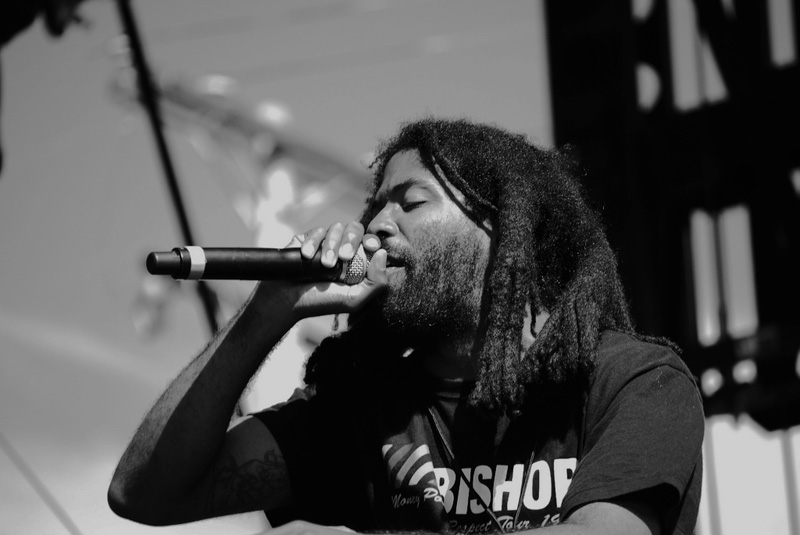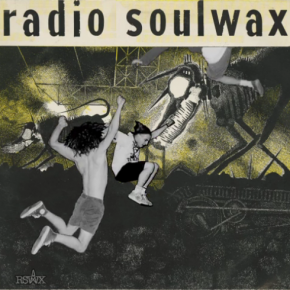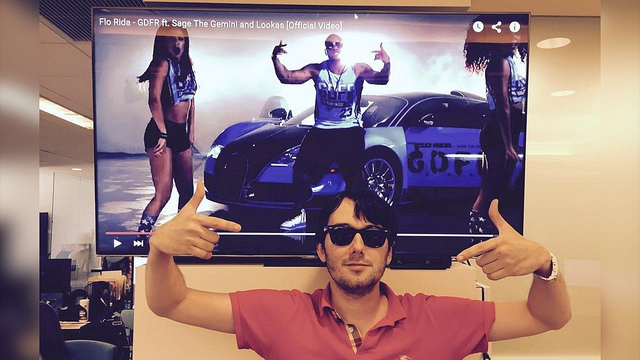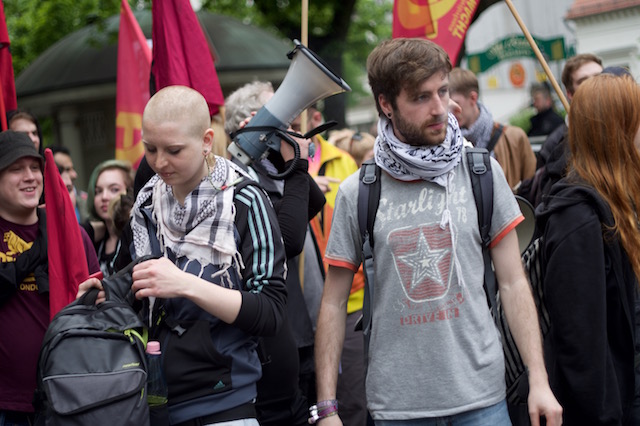“Epic Salutations,” the seductive opening track on Murs’ new album Love and Rockets, Vol. 1: The Transformation ends with what sounds like a mission statement: “Hard core rap about nothing at all.” But the reality of this fine hip-hop record is far more complex. While Murs still wants to liberate his favorite subgenre from the streets, he also wants to give those heavily stereotyped origins their due.
One of the album’s catchiest tracks “Easy-E” is a tribute not only to the NWA legend, but to a long list of those who developed the hard core sensibility. Or at least those progenitors from west of the Rocky Mountains. The song revives memories of the East Coast versus West Coast conflict of the 1990s that started out largely as a way to move units and ended up costing the lives of both Tupac Shakur and the Notorious B.I.G. Yet because Murs heaps praise on his forebears from California without dissing anyone on the other shore, the famous feud is reduced to the level of the “scrapping in the parking lot at Target” he mentions in the song.
Finding humor and hope in a legacy of needless bloodshed isn’t easy. But “Easy-E” manages to do just that. Even as he acknowledges the problems with a culture that exalted violence, Murs allows us to perceive the discrepancy between the death-dealing content of gangsta rap and the way it inspired young people like him to do something with their lives.
Although the meaning of the song’s chorus is ambigious, the feelings it communicates are emphatically positive: “When Easy-E was playing on the radio/I knew exactly how my day would go/California sunshine coming in/Singing gangsta rap with all my friends.” The song’s name-checking of artists associated with “the origins of California hip-hop” isn’t just an exercise in paying dues; it’s a way to retell a rich history but tell it slant.
The rest of the album builds on this project in various ways, repurposing the groove and swagger of gangsta rap at its best for a world that cries out for other ways of addressing one’s grievances. No, this isn’t “conscious” hip-hop in the politically engaged sense of Public Enemy, Mos Def or The Coup. The impact it makes is more subtle. For some critics it was clearly too subtle. Sometimes, though, indirection is the best form of direct action. Listeners who close their ears to preaching can still be converted to a new way of thinking.
The title of Love and Rockets, Vol. 1: The Transformation was not chosen lightly. Despite being consistently entertaining — moving effortlessly from wry to laugh-out-loud hilarious, coolly observant to stingingly heartfelt — Murs’ raps are all working towards the goal of liberating the social energy locked inside the music that he grew up singing with his friends. That’s why his choice of sounds is so significant.
Together with rising-star producer Ski Beatz, Murs redeems some of the least-lauded sounds in soul. Most of the album’s musical beds are constructed from sugary 80s “synth” numbers, light years removed from the Motown and Stax Records tracks that were the mainstay of first-generation rap. But the interplay between this outwardly suspect foundation and Murs’ masterful flow finds barbs within the syrup. The effect is to turn the clichés of gangsta rap inside out, slyly reminding listeners in the process that “hard core” legends like Dr. Dre got their start in the music business wearing the satiny suits of respectable black pop in the Reagan Era.
Although Love and Rockets, Vol. 1: The Transformation is too diffuse to be classified as a true concept album, there’s no mistaking the trajectory Murs charts from the opening track to its unexpectedly chilling conclusion. The last song “Animal Style” starts out with the promise of love, telling the story of two gay brothas who manage to find each other despite the intense social pressure in their community against homosexuality.
As the story of Jonathan, who is reasonably comfortable being “out,” and the closeted, gang-banging Roderick unfolds, the price of bliss becomes painfully clear. When Jonathan forgets himself and kisses his lover in public, their hope for a life together after high school turns into something dark and hateful: “Roderick dissed him/Threw him to the floor/He said, ‘You faggot/What’d you have to go and do that for?’”
Things only get worse from there. For an album that has been trying so hard to promote transformation, this sobering finale is major reality check. Some might say that Murs should have sequenced the tracks differently, so that listeners would exit on a more optimistic note. But this is where the homage paid on “Easy-E” gets returned with interest. By reappropriating the gangsta rap “ballad” — that antithesis to the boasting and bragging that otherwise define the subgenre — for a subject that its virulently homophobic discourse would never have countenanced, Murs performs the most impressive transformation of all.
There has been a lot of fine hip-hop released this past year. From platinum-selling Kanye West’s deservedly praised My Beautiful Dark Twisted Fantasy to the proudly eccentric Danny Brown’s richly rewarding XXX, the American front has produced impressive work. And the genre’s global manifestations continue to mutate in fascinating ways, as U.K. rapper Ghostpoet’s dubstep-colored Peanut Butter Blues & Melancholy Jam forcefully demonstrates. But no one has done a better job of confronting hip-hop as a historical phenomenon than Murs. Where others perceive only the burden of a troubled ancestry, blocking the passage to a better future, he finds a way to turn that mass into light.
Photograph courtesy of Kata Rokkar. Published under a Creative Commons license.





